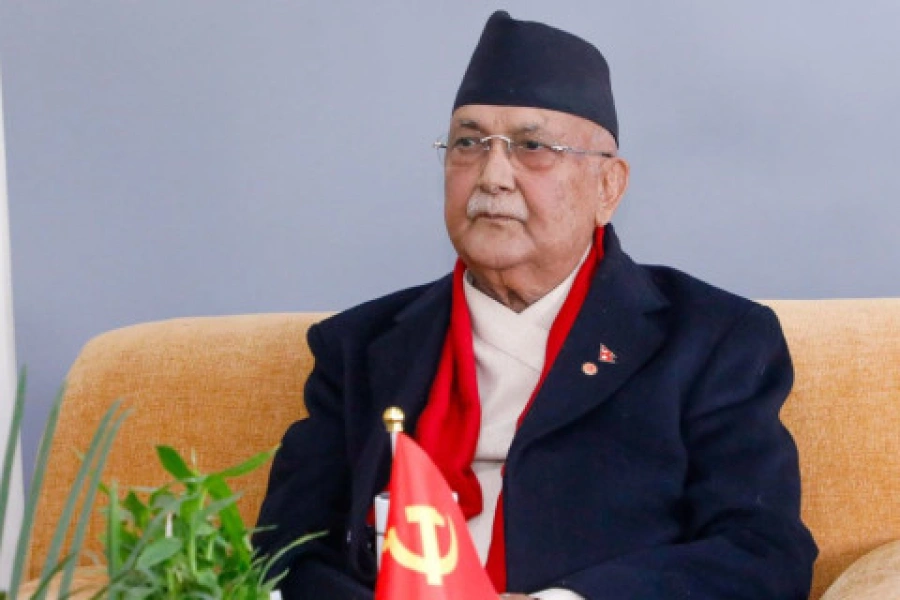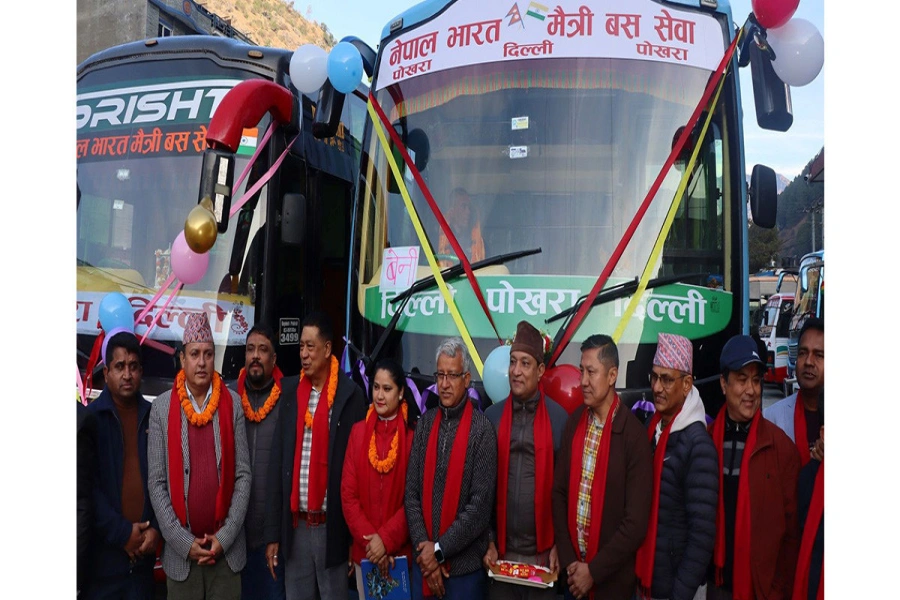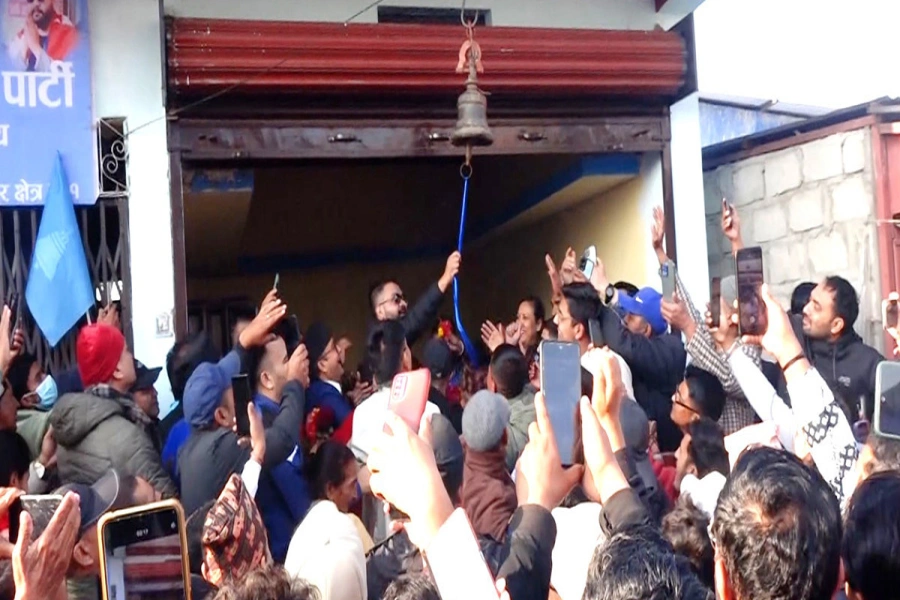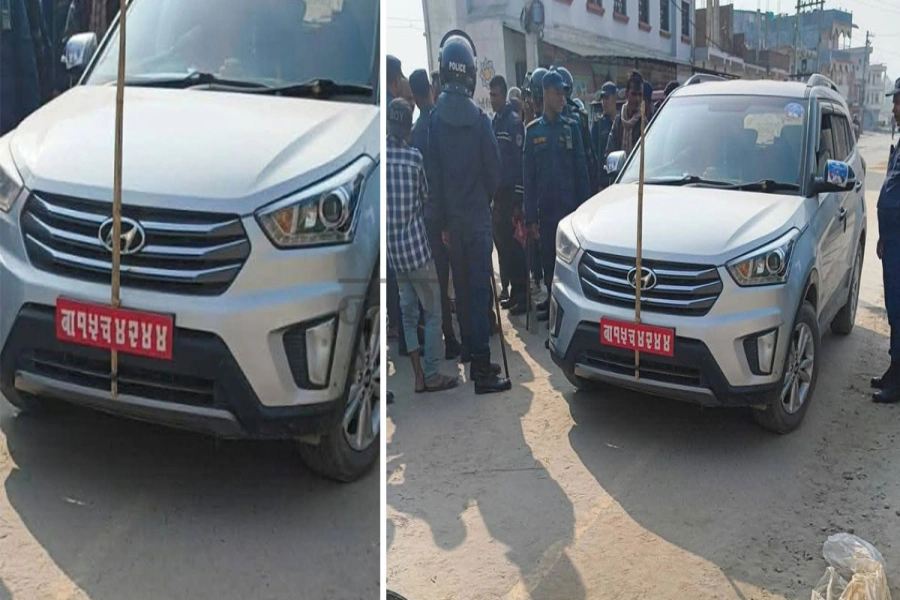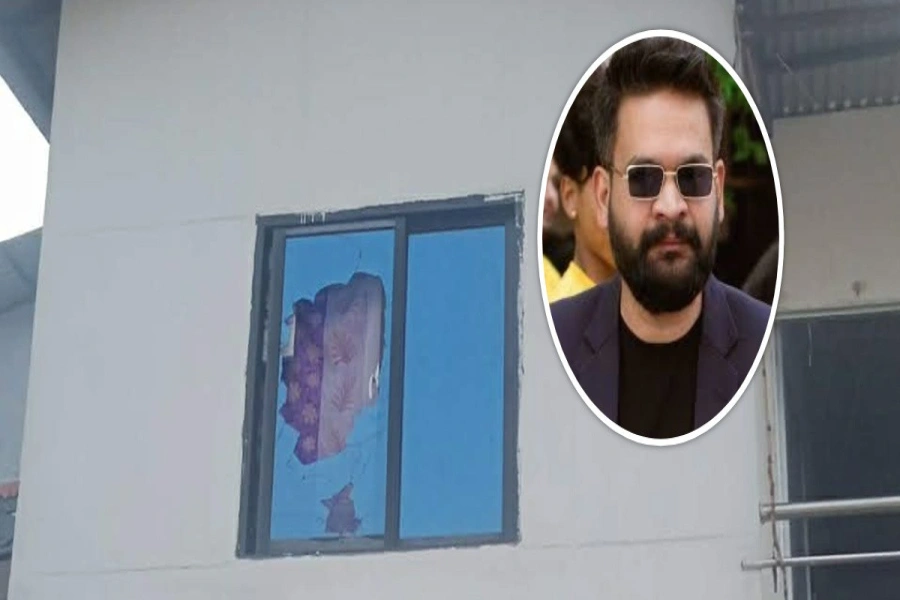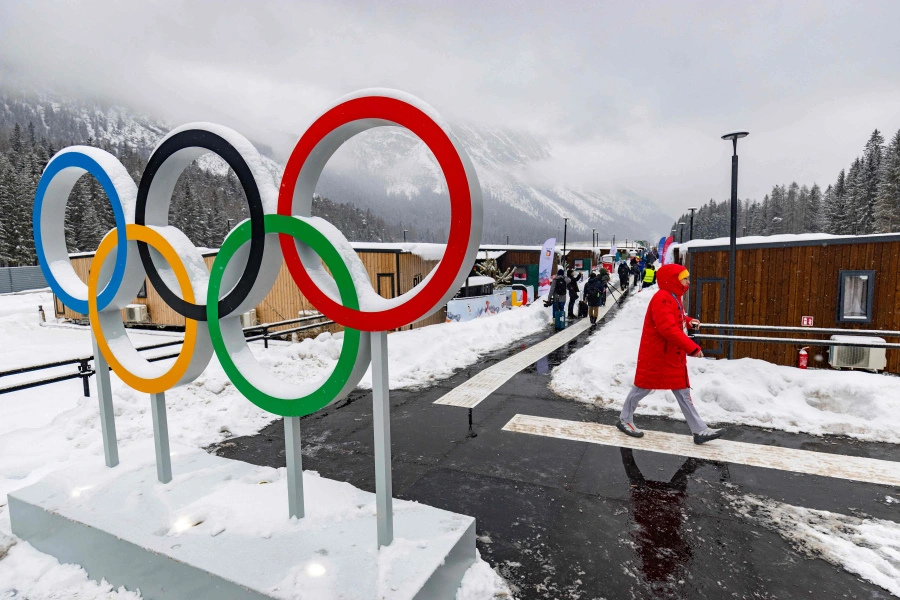Given the country’s political-economic situation, it is time to ask: Where are we heading towards?
When Burmese leader Aung San Suu Kyi visited Kathmandu in 2016, she was, literally, baffled by meeting more than half a dozen surviving PMs, that too, in a single day. In other places, crisis situations give birth to leaders, in our country, it is the leaders who give birth to crisis situations.
For the benefit of readers, let me first shamelessly copy here ChatGPT explanation on this Latin phrase quo vadis?Translated into English, the phrase means "Where are you going?" or "Where are you headed?" It is associated with a famous Christian legend where Saint Peter, fleeing persecution in Rome, meets a vision of Jesus on the road. Peter asks, "Quo vadis, Domine?" meaning "Where are you going, Lord?" Jesus replies that He is going to Rome to be crucified again, which inspires Peter to return to the city and face his own martyrdom.The implied meaning goes beyond its literal translation of "Where are you going?" and touches on deeper themes of purpose, direction, and destiny. It implies a moment of self-reflection or questioning about one's path in life, decisions, or future actions.In the context of the Christian legend, it suggests a confrontation with one's duty, the courage to face challenges, and the willingness to accept one's fate. More generally, it can be used to ask someone to consider the implications of their current course of action, encouraging them to think about where their choices are leading them. Then, let us ask:
Quo Vadis, Nepal?
Given the country’s political-economic situation, it is time to ask: Where are we heading towards? With daily mass exodus of the youths, mass inertia, frustration and desperation, political instability, economic stagnation, ever widening inequality, with a crap education system and massive youth unemployment no one is sure where the country is heading towards. Are we waiting for an accident to happen?
Forget about the people and politics, even nature seems to be in a rampaging mood - the floods, the landslides, avalanches, melting of snows, heavy downpours and extreme temperatures - all seem to be conniving for havoc and destruction.
The Mantra of Mission 84
Quo Vadis?

Ever since the completion of the last elections in 2022, every politician is chanting the mantra of “Mission 84”, that is, to come to power with a majority after elections in 2027 AD. In politics, even a week could be a long period, three years down the lane is, definitely, a very very long period. Still they are chanting the mantra of “Mission 84”.
For Nepali Congress “Mission 84” means contesting elections alone sans political alliances. For CPN-UML it means securing a majority government. For the Maoists, it means reinstating the electoral glory of 2008. For RSP, Mission 84 means everything, a magic wand. Even KMC Mayor, an independent candidate without political party affiliation, is positioning for a national leadership. Who knows, he may be dreaming of the resurrection of the panchayat type regime.
Agenda of Constitutional Reform
The constitutional reform agenda has gradually taken a back seat. It is slowly receding from the headlines. With the voices in opposition, the constitutional reform agenda sounds more like playing with hornets’ nests than opening a Pandora's box. NC and UML have stopped talking about constitutional reform, if they are talking they are talking in a generic sense that it will be done only after consultation with and consensus of all the political parties. The parties may have two-third majority, but they don’t have a mandate and, more importantly, the guts to amend the constitution.
Crisis of Leadership
There is a deep crisis of leadership which is reflected in governance failure. We have too many netas (leaders) and little or no netritwa (leadership). The situation gives an impression of the leaders competing in a race to break the record of becoming the PM of the country. When Burmese leader Aung San Suu Kyi visited Kathmandu in 2016, she was, literally, baffled by meeting more than half a dozen surviving PMs, that too, in a single day. In other places, crisis situations give birth to leaders, in our country, it is the leaders who give birth to crisis situations.
The largest political party, Nepali Congress - the grand old party of Nepal, is currently besieged by younger generation leaders seeking to replace senile leaders. Within CPN-UML, PM Oli gives an impression of a seasoned leader, but with his arrogance and frail health, he can falter any minute. In his briefing to the secretaries, PM Oli reportedly said “he will resign a week ahead of his two year tenure”. Given the unfolding of the situation, he may not have to wait that long.
In the third largest party, Mr. Pushpa Kamal Dahal is facing a direct challenge to his leadership. To quell dissenting voices, the party had to issue a formal circular denying possible split in the party. He is talking about unity of all types - communist unity, socialist unity, Maoist unity and unity among nationalistic forces. But the fact is that his own party has splintered into not less than half a dozen political groups and outfits.
There is no need to delve into the leadership crisis brewing within RSP. There is also no need to write about the eccentricities of new newcomers like Balen or Harka Sampang.
The Interregnum and the Monsters
Antonio Gramsci, the Italian Marxist philosopher, defined the concept of "interregnum" to mean a crisis situation in a society where the old order is dying or dead, but the new one is yet to be born. In his words, "The old world is dying, and the new world struggles to be born: now is the time of monsters." The period is marked by instability, uncertainty, and often the rise of "morbid symptoms" which leads to the emergence of monsters - chaotic, reactionary, or destructive forces that arise in the times of uncertainty. Are we having leaders or monsters?
Living in Nostalgic past
Like all individuals, when a society or a country sees no future or sees the future to be bleak, it hangs on to its past or becomes nostalgic.
Along with some other communities and ethnic groups, the Newars of the Kathmandu Valley could be seen busy celebrating their traditional festivals and rituals when, in fact, their political rights have been constantly rescinded and they are now minority even within the Valley. About two years back, I was invited to speak on anti-corruption to more than five dozen top level officers of KMC, on their in-service training course. I find less than half a dozen officers coming from the Newar community. Forget about the Mayor attempting to save Newa heritage and culture, what is the point in campaigning for Newa sambat, lanjana lipi and introducing Newari language in KMC public schools? In the absence of political rights, social and cultural rights are meaningless. What is the point in glorification of the past tradition when there is no future to live?
The Ranas ruled the country for 104 years (1847-1951) by exporting people into the British Army, under the brand name of “Gurkha bravery” and importing consumption goods so that they could levy import taxes and enrich themselves. This basic structure of the political economy has hardly changed from the Rana days. Now, we export workers to the Gulf countries, Malaysia and South Korea and the economy survives on their remittances. The chunk of government revenue still comes from import duties. Nepal may be a poor country but gold importation still stands atop the list of imports.
One can observe constant extraction and looting of state resources - forest, land, people, foreign aid to smuggling of contraband items and human trafficking. Nowadays, one can read in the media, the voices to legalize ganja cultivation, branding of tomba or exporting bottled water. What I see is more desperation to get rid of poverty than an honest plan to create wealth. Desire to get rich by exporting hydro-power is now being replaced by exporting water. Sending unemployed youths abroad for work, study or travel may provide temporary relief from possible political agitations, but there is no country in the world enriched by exporting its own people. There is public outrage over sending people abroad but at the same time there is a campaign for NRN citizenship rights, ballot boxes for the diaspora, state policies to attract money, skills and technology of the returnees.
What is the point in boasting with pride “Buddha was born in Nepal” when you have to think twice to allow the Dalai Lama to visit Lumbini - the birth place of Lord Buddha? What is the point in talking about Limpiyadhura, Kalapani and Lipulekh when an hour long blockade at any of the 13 border points can create havoc in Kathmandu? What is the point in talking about Mt Everest - the tallest peak in the world if you cannot measure its height without the consent of the neighboring country?
Definitely, there are no roads to nowhere. But there is a line from Alice in Wonderland: If you don’t know where you are going, any road will take you there. Quo vadis, Nepal?







